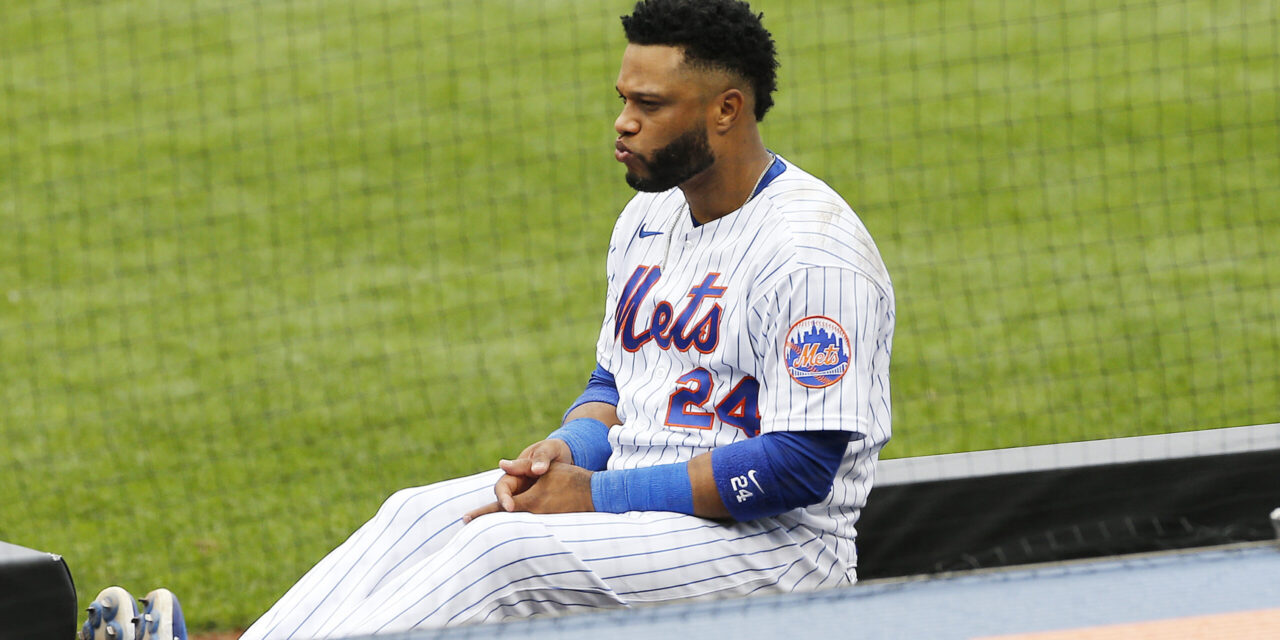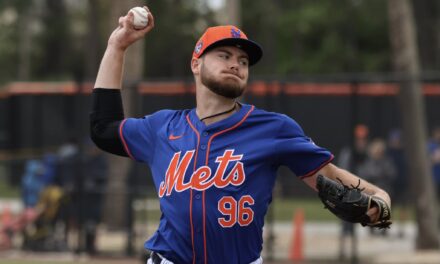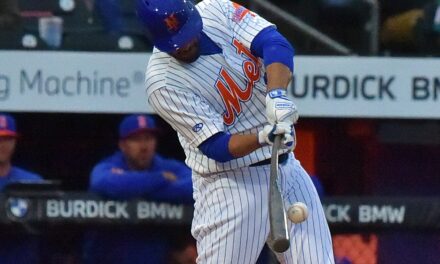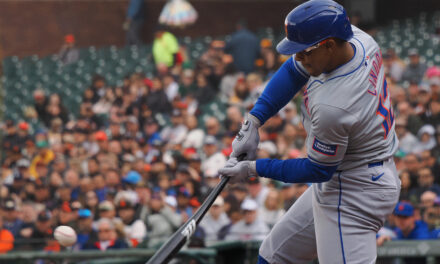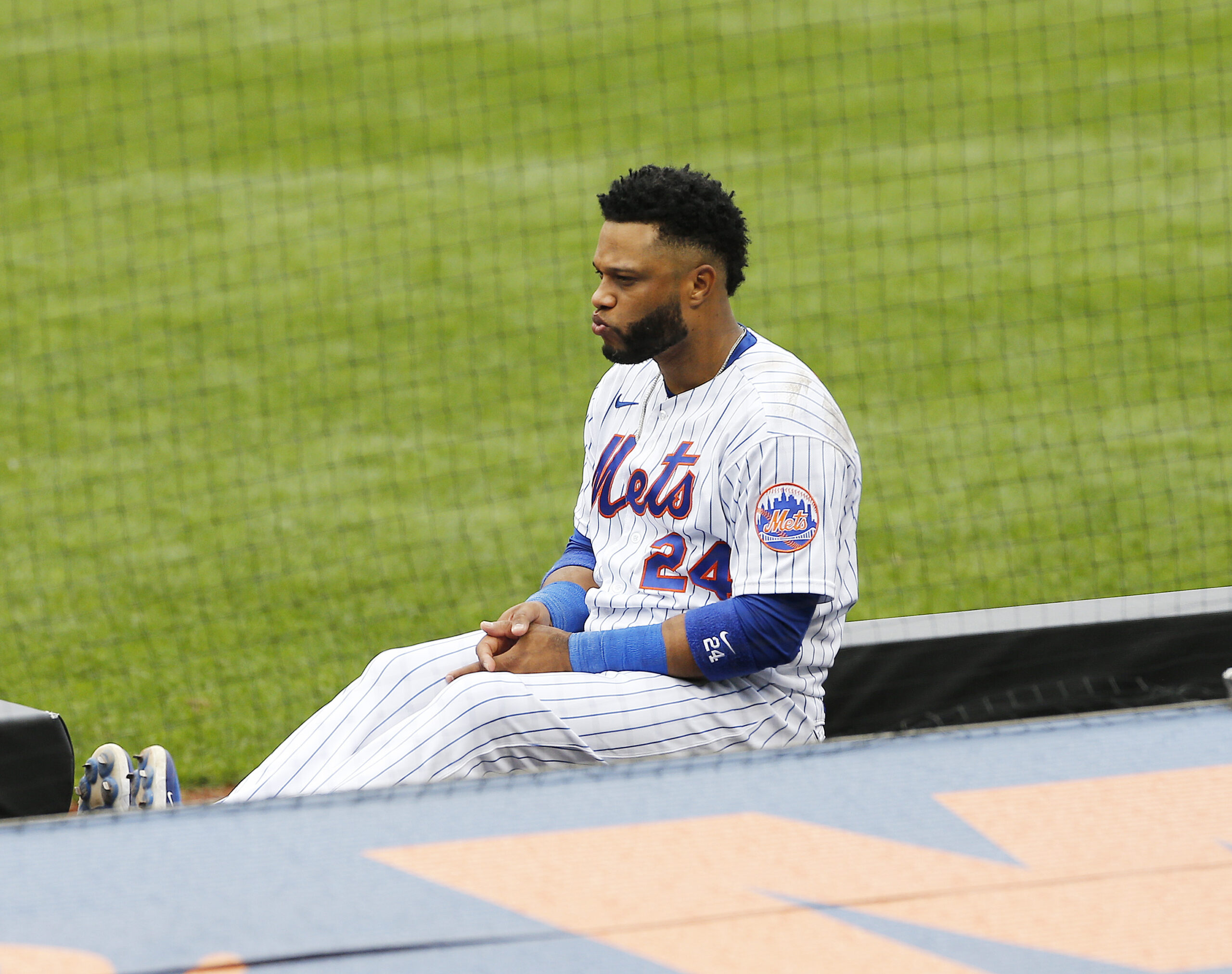
Credit: Andy Marlin-USA TODAY Sports
Dominic Smith‘s 4-for-4 performance on Sunday night’s Mets win versus Philadelphia solidified a decision that was in the cards for quite some time. Smith, along with a few other teammates were potential candidates to be cut, as the roster mandate required major league teams to trim their rosters from 28 to 26.
The New York Mets made their decision and announced they would designate second baseman Robinson Canó for assignment on Monday, all but setting up a release from the team and ending a very expensive tenure that had some ups and many downs.
Mets Trade For Cano And Diaz
As his team control came to a close with the Yankees back in 2013, the Yankees offered Canó a seven-year, $175 million to stay in the Bronx. That wasn’t enough for Canó and his agent Brodie Van Wagenen and rapper and freshly turned agent Jay-Z, as they brokered a deal with the Seattle Mariners for 10-years, $240 million.
While he put up mostly solid seasons through 2017, Canó’s reputation took a huge blow in 2018, as he was suspended for 80 games for testing positive for performance-enhancing drugs. The positive test occurred in the off-season, and he appealed the ruling but did not disclose this to his teammates. Canó would suffer a fractured hand in May of that season, which would sideline him for two months. He dropped the appeal and served his suspension, which frustrated many of his fellow clubhouse mates.
Ultimately, as he returned, Seattle faded out of the playoff race and the shuffling of the lineups all but signaled that Cano’s tenure with the Mariners was just about finished. Months after the season ended, Mariners general manager Jerry DiPoto decided on working to move Canó’s contract in order to kick start a rebuild.
Newly minted GM for the Mets, Brodie Van Wagenen, wanted to make a statement, just like the Mariners did back in 2014, and he did just that. The Mets and Mariners agreed to a trade that would send Mariners’ Canó and closer Edwin Díaz and $20 million for Canó’s salary to the Mets for outfielder Jay Bruce, pitchers Gerson Bautista and Anthony Swarzak, along with prospects Jarred Kelenic and Justin Dunn.
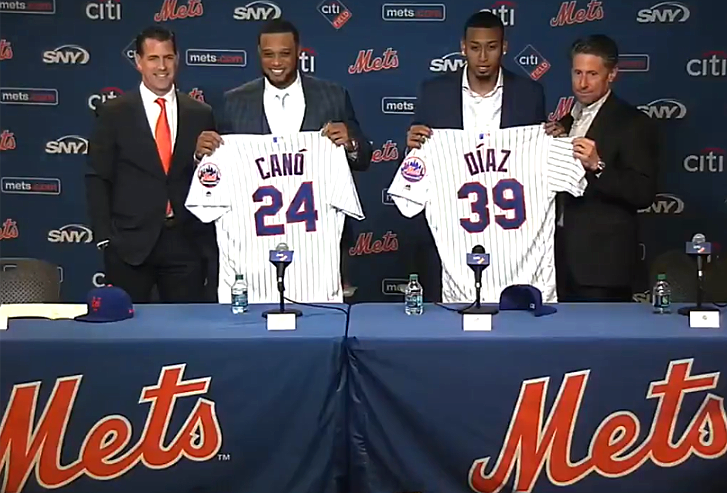
The deal was met with widespread criticism, as many fans and pundits saw the Mets giving up too much for an aging Canó. Although some will say that the deal was primarily for Edwin Diaz, who was rumored to possibly be sent to Philadelphia, some still felt that trading a highly regarded prospect in Kelenic was too much an asking price for an aging infielder whose numbers were declining as well as being fresh off a PED suspension. There were also numerous reports and leaks about the trade in the days leading up to it that infielder Jeff McNeil was part of the trade, sparking more outcry from Mets fans everywhere.
First Season Down, Second Season Up
Cano began 2019 on a strong note, as he hit the first Met home run off the season against then Nationals ace Max Scherzer. The rest of Canó’s season proved to be a rocky one, which included two trips to the injured list in the first half, and overall, putting up the lowest numbers of his career, totaling a .256 average and 13 home runs and a career-low 39 RBI. He would show some significant improvement by posting a second-half OPS of .880 versus a first-half OPS of .646. He would also have his first three-home run game on July 23 against the San Diego Padres. All in all, a rocky first season that had its ups and downs.
Canó’s 2019 second-half bump carried over into the pandemic shortened 2020 season. He put up a strong rebound season by hitting .316 with ten home runs and 30 RBI in just 49 games and 171 at-bats. His 2020 season proved to be one of his best offensive seasons and many believed that Canó had found his stroke and could legitimately help the Mets for the duration of his contract.
Suspended (Again)
On November 18, 2020, Cano tested positive for a performance-enhancing substance. Major League Baseball reported that Cano tested positive for Stanozolol and, being that this was the second positive test, it meant that Cano would have to sit out the entirety of the 2021 season as well as giving up his $24 million salary for the whole campaign.
The news of Cano’s suspension also came around the same timeframe that incoming owner Steve Cohen was beginning to take full control of the team, which meant the ousting of any major players of the previous regime, which included Brodie Van Wagenen, Canó’s biggest supporter.
This paradigm shift within the organization meant that the team would look at Canó differently and, although he had a strong rebound in 2020, his PED suspension questioned the legitimacy of that performance and puts an ugly mark on what has seemed like a potential Hall of Fame career.
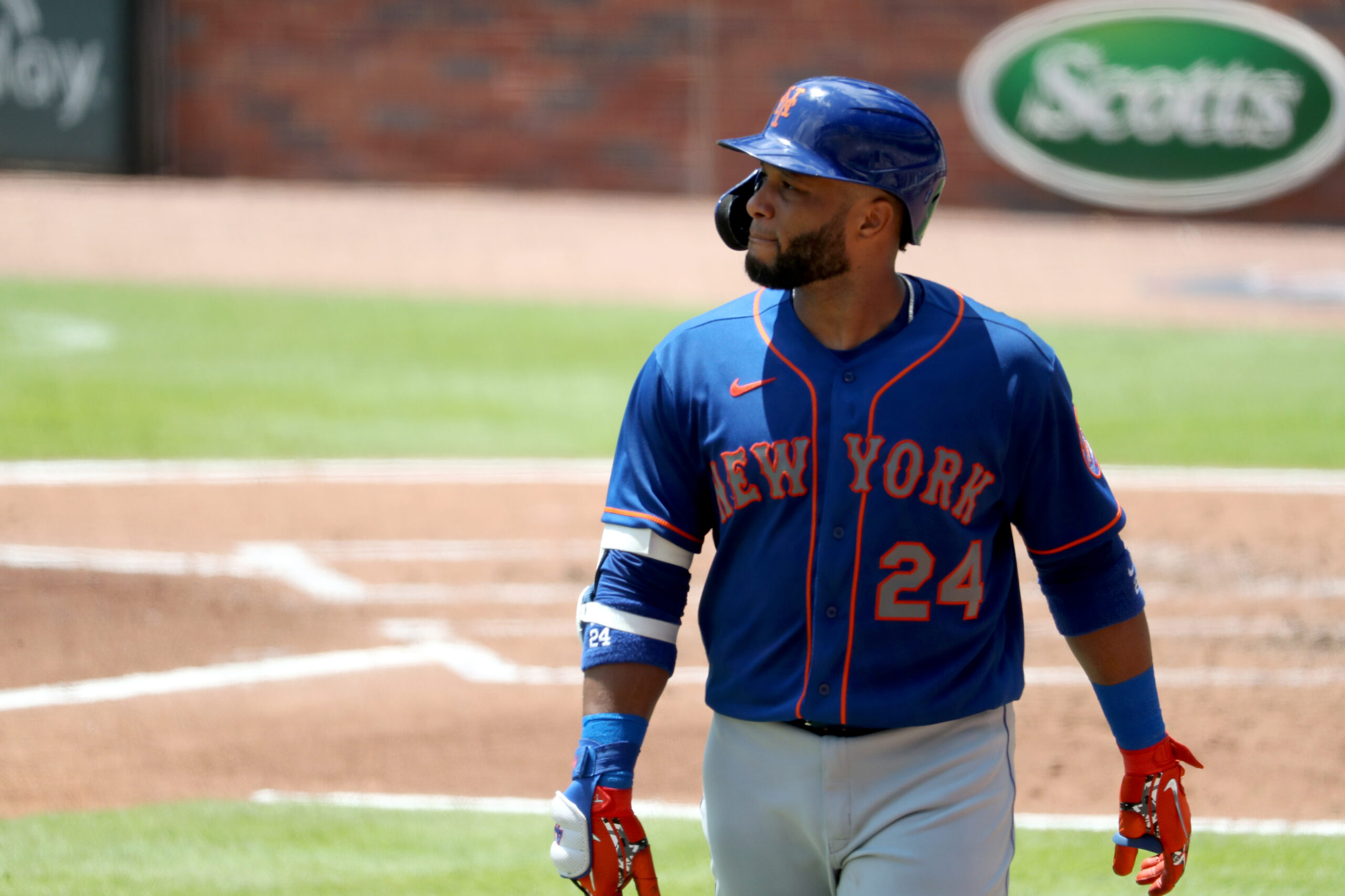
Credit: Jason Getz-USA TODAY Sports
Last Licks & The End Of The Road
Sitting out the entire 2021 season, Canó looked to return to the Mets for 2022. In the meantime, while playing in Dominican Winter League and Caribbean Series, Canó played well and hit .450 with seven RBIs in six games during the Caribbean World Series. Though he hit singles and got on base during LIDOM and the CWS, Canó didn’t show much power while playing in the Dominican.
Wanting to give him a chance, the Mets welcomed Cano back to the club, which included an apology to his teammates for his PED suspension. Although a lock to make the roster, the additions of Eduardo Escobar, Mark Canha and Starling Marte as well as the team not trading Jeff McNeil, Dominic Smith and J.D. Davis, basically made it almost impossible for Canó to get regular playing time unless he came out of the gate strong. He would need to impress owner Steve Cohen and new general manager Billy Eppler and manager Buck Showalter.
Sadly for Canó, that did not seem to be the case, as he only hit .195 with one home run–his only extra-base hit–in 41 plate appearances, which led to the decision for the team to designate him for assignment.
Aftermath
Tim Healey of Newsday reports that although players like Dominic Smith and Luis Guillorme have minor league options, the correct call was made cutting Canó. Being an aging second baseman with limited range and a declining bat, the Mets decided to make the best decision for the ballclub, albeit a difficult one. Billy Eppler, who was with the Yankees during most of Cano’s years in the Bronx said commented on the roster move.
“It was pretty difficult,” Eppler said Monday outside of the Mets’ clubhouse, where the move was expected to resonate because of Cano’s well-liked status. “I’m not trying to process every player conversation I’ve ever had with that kind of magnitude, but with my history with Robbie and sharing a lot of experiences with him, professionally, I’d say it was one of the more difficult ones.”
J.D. Davis also said the move “took a little bit of wind out of our sails” as a team, and Francisco Lindor said he felt “sad” about the decision, though he understood and respected the Mets’ move.
The Mets will be on the hook for the rest of his contract–about two years and $36 million, prorated to the time he played this season–and both Showalter and Eppler see him catching on with another team. Canó indeed still wants to play and his agent, Brodie Van Wagenen states that they are looking for opportunities for Canó to contribute to another ballclub. If he does join another team, the Mets would pay Canó’s full salary minus whatever contract he agrees to with another team (so, they may save a couple hundred thousand dollars if he does).
Although Mets brass will welcome Cano back with open arms, if he decides to accept an assignment to Triple-A Syracuse, it is more than likely the case that we have seen the last of Robinson Cano in orange and blue.


